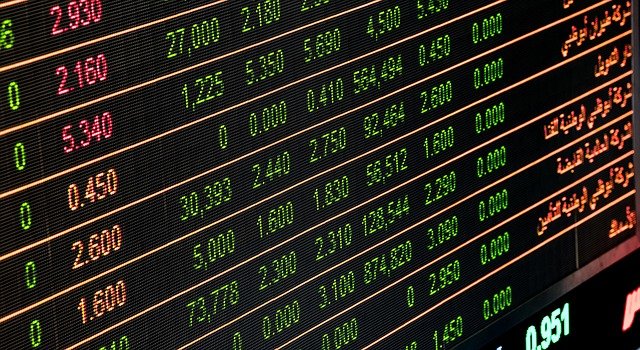Proprietary trading occurs when a financial organization invests for market gain instead of earning commission for its clients. The trading involves the trading of bonds, currencies, stocks, and commodities. The trading enables the financial firm to pool an inventory of securities. The economic organization earns revenues in the form of commission. The following are things you need to know about proprietary trading firms.

The Process of Trading
The financial firm carries out the trading for purely their benefit, which is the commission. It uses the funds at its disposal to carry out the trading, so the firm risks losing or gaining. There are prop trading firms that mainly focus on derivatives which are futures and options. The derivatives are later sold to potential clients, and that’s how the company gets returns.
Initially, the firm could trade for its clients, but there were low returns, so most firms just focused on their benefit. The prop trader trades a large amount of single security, and a prop trading desk acts as the intermediary. The intermediary can be a buyer or a seller whose work is to initiate the trading process on behalf of the client.
The Trading Companies
Several companies engage in proprietary trading. Most companies that involve themselves in the trading are commercial banks or broker companies. These companies invest in professional financial experts whose main job is to do the trading. These traders take the responsibility of making the prices and executing trades.
The company operates with two functional models.
These models can either be a broker-dealer or a non- broker-dealer. The broker-dealer is the company subjected to licensing and all the trading regulations. The non-broker-dealer is not subjected to any trading regulations.
The broker-dealer provides investment advice to the clients, supplies liquidity throughout market-making activities. The broker-dealer is also responsible for raising capital for the company and publishing investment research. The broker-dealer handles all transactions involving the trading process.
Who are the Prop Traders?
The prop traders work around stocks, futures, options, and currencies, intending to profit from the trading process. They work for the company on a contract. In a firm, many proprietary traders work together to understand the trends of the stocks in the market. They have the advantage of being surrounded by other experienced traders and can access more capital the trading.
The prop traders get paid after profit has been generated. Their daily work includes assorting the market strategies. These market strategies involve; global macro trading, technical analysis, index arbitrage, statistical and merger arbitrage, fundamental analysis, and volatility arbitrage. The trading process is purely speculative and is executed in complex investment vehicles.
Online Trading Platforms
With the advancement of technology, trading online has been made easier. You can carry out proprietary trading online. Most companies that are involved in trading have embraced online trading, which is efficient and transparent. After signing up the trading accounts, only a few personnel are required to run and monitor the online trading accounts.
The online proprietary trading platforms are better because there is more control and flexibility. The company also saves on the money spent to pay the broker. You also have the option to monitor the investments trends in real-time. Investing is quicker since no mediator is involved. With online trading, you can research stocks’ performance and choose what is best for you is.
Strategies to Use When Trading
For you to gain profit in proprietary trading, it would be best if you considered understanding all the strategies to help you achieve a higher return. You are required to understand processes like the order flow approach, merger arbitrage, among many others. It will help if you use algorithmic trading if you are an experienced proprietary trader.
All the strategies used in proprietary trading have their uses. Merger arbitrage helps you to take advantage of inefficiencies in the market. The index arbitrage will help make a profit from the difference between the futures price and the actual price of the same stock.
Global macro-trading depends on the systematic risk of the market and the interpretation of macroeconomic events taking place on the local, regional or international scale. Volatility arbitrage helps you to make a higher profit from options and the trends in the market.
It would be best if you engaged in proprietary trading if you have experience in how the trading works. Proprietary trading firms have immense earnings that they make from the trading. As trading continues to become popular, many people are likely to join proprietary trading.
